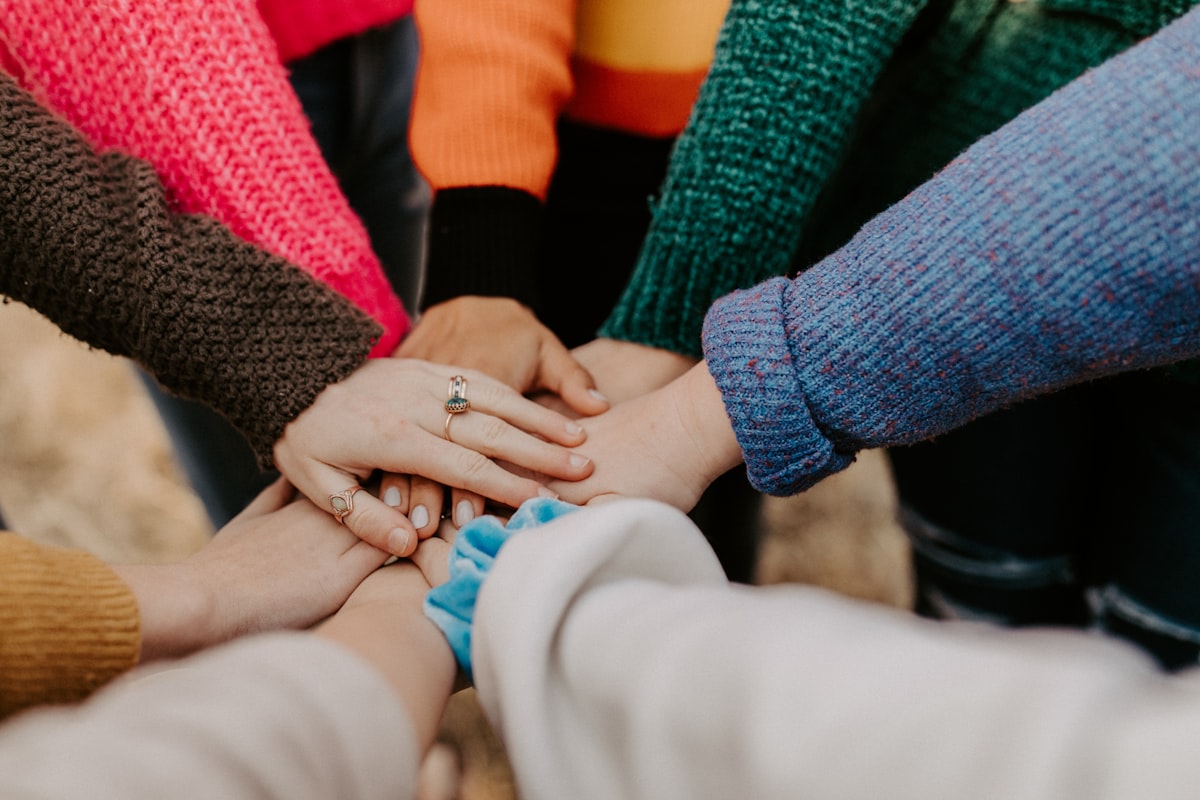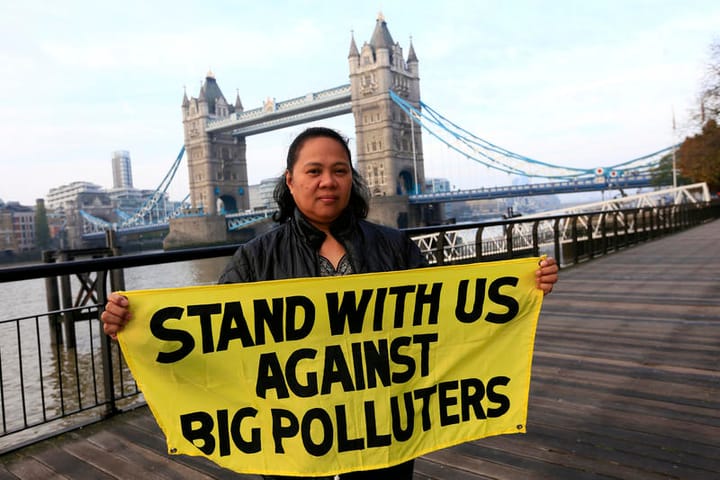Collaborate or die: How working together can boost climate litigation

Collaboration can be one of the climate litigation movement's greatest strengths as litigants work together to exchange ideas, inspire new cases and share the psychological load.
Last month, a group of NGOs brought a joint legal challenge against the EU for its plan to fast-track gas projects. ClientEarth, Friends of the Earth, Food & Water Action Europe and CEE Bankwatch Network all argued that the priority list of projects drawn up by bloc did not consider the huge greenhouse gas effects of methane emissions.
ClientEarth CEO James Thornton tweeted that his lawyers and communications team “loved working” with the other organisations and declared that “nobody will get anywhere quickly alone”. ClientEarth also recently joined existing legal action by Fossielvrij Netherlands and Reclame Fossielvrij against Dutch airline KLM accusing it of greenwashing (the case was formally filed yesterday).
These moves were not that unusual - NGOs do work together to tackle complex and expensive lawsuits - but climate litigation has really benefited from teamwork across the world.
During a talk in February, Dr Margaretha Wewerinke-Singh, assistant professor of public international law at Leiden University, said learning and collaboration within and between countries had led to a “snowball effect” where climate-related cases had grown exponentially around the world.
Data from Sigwatch, which analyses NGO campaigns, shows more climate litigation cases were launched last year involving more than one group than by single claimants.
Dr Wewerinke-Singh’s qualitative research shows most lawsuits that seek to further climate action are filed through “sparks of inspiration”, either via formalised groups such as the Climate Litigation Network or serendipitous encounters. “People tell us that they read about Urgenda and thought ‘Why not try and get it in our country?’ They write to a lawyer and then that initial spark can result in a new case. It happens regularly in this field.”
As well as inspiring new cases, litigants are sharing legal expertise such as case details, what works in different jurisdictions, ideas of how to frame arguments and experience in getting lawyers and judges to grapple with compex climate science.
Challenges
But that doesn’t mean collaboration is always easy. Over in the UK, ClientEarth was one of three NGOs to bring remarkably similar but separate legal challenges to the country’s Net Zero Strategy.
When the cases were first filed, the organisations maintained that there was enough difference between them to merit different lawsuits.
Following orders from the judge they consolidated their grounds and, by the time of the court hearing in June, were working together “to present a single, consistent set of submissions”. They also coordinated their communications about the lawsuit, releasing joint press releases.
Will Rundle, head of legal at Friends of the Earth, tells The Wave that producing a joint skeleton argument was legally tricky. The groups had to consider the extent to which their cases overlapped and whether an argument made by one could undermine another.
It remains to be seen whether too many cooks spoiled the broth. On the one hand, the joint hearing meant many voices could be heard arguing against a single government policy. On the other, with six bewigged barristers crowding the plaintiff’s benches against three on the government’s side, it risked a lack of legal coherence.
“It really depends on how constructive people are going to be,” says Rundle. “And that depends on the clients as well as the barristers and the lawyers. We've all got a very common objective in this case. And from our perspective, I think it worked well; we all added value to each other's arguments.”
Dr Wewerinke-Singh said that, while “almost everyone collaborates with others in some way”, whether they choose to work together and how much they actually disclose - particularly when it comes to confidential information - depends on whether they share fundamental pragmatic aims and principles.
Rough landing
Celeste Hicks is a journalist whose recently published book Expansion Rebellion examines what happened behind the scenes at court hearings challenging the expansion of London’s Heathrow Airport, where different groups argued against it for different reasons.
She describes an “unwritten agreement between environmental lawyers that the movement should decide collectively which cases have a good chance of winning, particularly as a significant loss could close the door on other groups bringing challenges on the same grounds”. This was tested in the case of Heathrow “where coordination between all the competing claims was not always as smooth as it could have been”.
NGOs and lawyers are generally pragmatists, weighing up the costs of litigation and the chances of a successful lawsuit with internal organisational pressures and reputational desires.
But, Hicks tells The Wave, they also have different personal and professional attitudes to risk. "There will always be individuals who want to go faster and those who are more cautious.”
Although the lawsuits did not block Heathrow expansion as hoped (an issue that has yet to be decided by the UK government) Hicks concludes that they were successful because they brought the issue of aviation's climate impact into the public eye.
“The key to a successful campaign is a collaborative approach to working out what everyone can agree is at the fundamental heart of the argument,” she says. “In the Heathrow case it seemed that the lawyers were able to eventually agree that the importance of the UK's signing of the Paris Agreement, and the commitments which stemmed from that, should never be up for negotiation.”
"There’s a lot of cross-fertilisation going on"
When bringing cases in other countries, Rundle says it is important to work with local organisations on the ground to give it “authenticity and genuine connection to the subject matter” as well as to gather more evidence. In a recent lawsuit, which challenged UK government funding for a huge gas project in Mozambique, Friends of the Earth had support from colleagues in the Netherlands, who unearthed relevant information under their own country’s freedom of information laws.
The NGO is also working with organisations across the world to support further legal action against the Mozambique project. “There’s a lot of cross-fertilisation going on,” says Rundle.
There is a “great desire to learn from successes”, said Dr Wewerinke-Singh. “But we see that those who transmit knowledge also learn a lot about contexts in which replication is happening and actors feel respected and that they own in-depth knowledge of their legal system and cultural context matters.”
Apart from the risks of complicating legal arguments, are there any bigger risks to collaboration?
The recent US Supreme Court ruling decision in West Virginia v EPA, as Amy Westervelt reminds us in Hot Take, “was a case crafted very strategically by the Republican Attorneys General Association” and powerful actors behind the scenes.
Those same forces have sought to paint the climate litigation movement as engaging in conspiracy, with particular criticism levelled at a programme funded by Michael Bloomberg to fund a network of climate lawyers inside state attorney general offices.
The Wave spoke privately to a number of people involved in climate litigation, who reflected on these criticisms. They pointed to the huge imbalance of power between the two movements and the vast difference in how transparent they are about their funding, resources and methods. “The fact is that advocates coming together to share is not a conspiracy,” one tells me.
Another notes that those trying to set back climate action exclusively support the narrow interests of the fossil industry and the people who benefit financially from it. Meanwhile, those advocating for climate action support the interests of the public at large - which a democractic state is meant to do.
Tackling this kind of criticism is tiring. Which is why, as well as encouraging more lawsuits to be filed and increasing the chances of success, collaboration provides a vital support network. “Actors involved in these [cases] share how they deal with backlash, how they deal with the stress of litigation and managing work/life balance,” said Dr Wewerinke-Singh.
She noted that, while established NGOs are often involved, many individuals and groups bringing climate cases are first-time litigators - and many are young. “They are not people who go to court all the time, and are taking on cases that are very complex and controversial.”
Going to court to challenge a government or a big company is a brave move, but having the support of a network of enthusiastic collaborators all over the world can make a huge difference to people’s resilience in the face of such seemingly huge odds.



